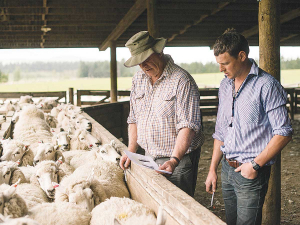Editorial: Goodbye 2024
OPINION: In two weeks we'll bid farewell to 2024. Dubbed by some as the toughest season in a generation, many farmers would be happy to put the year behind them.
 The continuing impact of Covid, soaring input costs, labour shortages and ever growing regulation continued to steal much of the shine off good prices.
The continuing impact of Covid, soaring input costs, labour shortages and ever growing regulation continued to steal much of the shine off good prices.
OPINION: As 2021 draws to a close, most farmers will be looking forward to it ending and hoping for better things in 2022.
Strong commodity prices and good growing conditions, on the whole, have meant a reasonable year for most of the country's farmers and growers. However, the continuing impact of Covid, soaring input costs, labour shortages and ever growing regulation continued to steal much of the shine off good prices.
During the year, for the first time in a generation, farmers and rural people in their tens of thousands took to the streets in towns and cities - not once but twice - up and down New Zealand to express their concerns and consternation about where things are going for people living in the country. All at a time of near record milk payouts, horticulture and red meat returns.
Surely this points to something seriously wrong going on. However, those in the Government, bureaucracy and parts of our farming leadership appear either oblivious or downright scornful of this justified farmer angst.
Much of the blame for this can be fairly sheeted home to the levy bodies, which seem to have made little to no effort to get proper farmer mandates before taking their advocacy positions.
It seems their desire to "be at the table" to share drinks and canapés with current Government ministers has taken priority over properly advocating for their farmer levypayers. These organisations have pretty much 'lost the room' with regards to grassroots farmer support and hence the emergence of an outfit like Groundswell. One suspects that the information the Prime Minister is currently refusing to release about that rural lobby group has been garnered from sources within these levy bodies and is highly derisory.
It will be interesting to see how those bodies react if the looming carbon emissions regulation and targets for the agricultural sector are roundly rejected by their levypayers during the rounds of consultation early next year. Will they kowtow to the Government - as they have over the past four years - or finally stand up and fight for what farmers demand?
Despite this, they have shown some backbone in advocating for the split-gas approach (treating methane separately to long-lived gases) and the opportunity to develop a sector solution in He Waka Eka Noa.
Roll on 2022 and better, stronger sector advocacy!
While the recent storms in the upper and eastern part of the North Island have hit a few kiwifruit growers, it is unlikely to have a major impact on the overall industry.
Keratin biomaterials company Keraplast and Wools of New Zealand have signed a new superpremium wool contract which is said to deliver a boost to wool growers.
While things are looking positive for the red meat sector in 2026, volatility in global trade remains a concern, says the Meat Industry Association (MIA).
The quest to find innovative practical, scientific solutions to deal with water-related issues at a catchment level has been the theme of an important conference at Massey University last week.
One of the country's top Māori farms faces a long and costly rebuild to get the property back to where it was before recent storms ripped through it.
The latest Global Dairy Trade auction results have delivered a boost to dairy farmers.

OPINION: First on the scene after the recent devastating storms in parts of the North Island were emergency services and selfless…
OPINION: Why can't Christopher Luxon stand up to Winston Peters over the latter’s high-profile attack on the proposed Indian FTA?